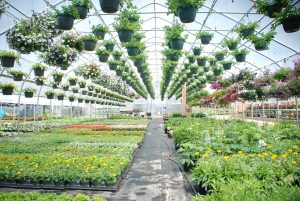In today’s fast-paced world, finding solace in the midst of chaos seems like an impossible task. But what if I told you that there is a simple yet profound way to find peace and tranquility right outside your doorstep? Enter the world of gardening – where soil meets soul. Beyond its aesthetic appeal, gardening has been scientifically proven to have numerous benefits for our mental health. From reducing stress levels to boosting self-esteem, let’s embark on this horticultural journey together and uncover the secrets hidden beneath the petals and leaves.
Connection With Nature And Environment
Humans have an innate connection with nature that is often overlooked in our busy, technology-driven lives. However, research shows that connecting with the natural world can have numerous benefits for our mental health and overall well-being. Gardening provides a unique opportunity to foster this connection as it allows us to get our hands dirty, work with plants and soil, and engage in the natural cycles of growth and renewal.
When we garden, we become more aware of the intricate web of life that surrounds us. We observe the delicate balance between sun, water, soil, and plants that is necessary for them to thrive. This heightens our appreciation for the beauty and complexity of nature. In turn, we may find ourselves feeling more connected to our environment and developing a sense of stewardship towards it. Gardening invites us to slow down and be present in the moment as we tend to each plant’s needs – watering them gently, pruning dead leaves or branches with care – creating a nurturing environment not only for them but also for ourselves.
Physical Exercise And Stress Relief
Physical exercise is not only essential for maintaining good physical health, but it also plays a crucial role in managing stress and promoting mental well-being. Engaging in activities like gardening can have a significant impact on reducing stress levels and improving overall mood. When we engage in physical exercise, our body releases endorphins—often referred to as feel-good hormones—which help alleviate stress and boost our mood. This natural high can make us feel more relaxed and content, providing an effective method of stress relief.
Furthermore, the act of gardening itself offers numerous benefits for mental health. Spending time outdoors surrounded by nature has been shown to reduce anxiety levels and improve cognitive function. The combination of fresh air, sunlight, and the grounding effect of being close to the earth can create a calming environment that allows us to escape daily stresses and focus on nurturing our plants. Additionally, watching plants grow and thrive as a result of our efforts can provide a sense of accomplishment and satisfaction, further enhancing our emotional well-being.

Boosting Mood And Decreasing Anxiety
Gardening has long been praised for its ability to boost mood and reduce anxiety, and countless studies have supported this claim. One reason for this is the calming effect of being surrounded by nature. Spending time in your garden allows you to disconnect from the pressures of everyday life, immersing yourself in the present moment. The sights, sounds, and smells of nature engage your senses in a way that can soothe anxiety and promote relaxation.
Additionally, gardening offers a sense of accomplishment and purpose. Watching your plants thrive under your care can be incredibly rewarding, boosting self-esteem and overall happiness. Research has shown that engaging in activities that provide a sense of achievement can help combat symptoms of depression and improve overall mental well-being. Whether it’s growing your own vegetables or creating beautiful flower beds, seeing tangible results from your efforts can give you a much-needed sense of fulfillment.
Cultivating Mindfulness And Focus
In today’s fast-paced world, it’s easy to become overwhelmed and lose focus. However, gardening provides a perfect antidote to this modern malaise. When we engage in the act of cultivating plants, we are forced to slow down and be present in the moment. We must pay attention to our surroundings, observe the needs of our plants, and tend to them with care. This practice of mindfulness allows us to escape from the noise and distractions of everyday life and fosters a sense of calm within us.
Moreover, gardening helps improve our ability to focus on specific tasks. As we plan our garden layout, choose seeds or plants, prepare the soil, and tend to each individual plant’s needs, we naturally develop an enhanced ability for sustained focus. The repetitive nature of gardening activities allows us to enter a state of flow – that elusive optimal mental state where time seems nonexistent as we immerse ourselves fully into what we’re doing. This focused engagement not only improves productivity but also enhances our overall well-being by giving us a sense of accomplishment and purpose.
Nurturing A Sense Of Purpose
Aside from the physical and mental health benefits, another reason why gardening is good for our well-being is that it helps nurture a sense of purpose. When we dedicate time and effort to tending to plants, we become part of something bigger than ourselves. Growing plants requires patience, dedication, and gentle care. As we witness the fruits of our labor blooming before our eyes, we begin to feel a deep sense of achievement and fulfillment.
Furthermore, gardening provides an opportunity for us to connect with nature in a profound way. Our role as caregivers to these fragile living beings instills within us a greater appreciation for the intricate beauty found in every leaf, bud, and stem. This connection with nature helps ground us in the present moment and reminds us that life itself is constantly evolving and growing – just like the plants we tend to. When we engage in this symbiotic relationship with nature through gardening, it helps foster a deeper understanding of our own place in the world.
Conclusion:
In conclusion, gardening has proven to be a powerful tool for promoting mental health and overall well-being. Not only does it provide a simple and accessible way to connect with nature, but it also offers numerous therapeutic benefits. Through the act of cultivating plants, individuals can find solace in the rhythm of nature, experiencing a sense of peace and tranquility that may be difficult to find elsewhere. The physical activity involved in gardening also releases endorphins, which are natural mood boosters that can help combat feelings of stress and anxiety.
Furthermore, gardening promotes mindfulness by encouraging individuals to stay present at the moment as they tend to their plants. This can serve as a form of meditation and help reduce symptoms associated with depression or other mental health conditions. Additionally, engaging with plants has been found to increase self-esteem and create a greater sense of purpose for those who struggle with feelings of worthlessness or lack of direction in life.
Overall, harnessing the therapeutic power of gardening is an enriching experience that goes beyond just planting seeds or growing flowers. It serves as a vehicle for personal growth and healing by fostering connection with nature, promoting mindfulness, boosting self-esteem, providing physical activity, and offering a sense of purpose. So whether you have acres to spare or just a small balcony garden, don’t underestimate the transformational effects tending to plants can have on your mental well-being.






Be First to Comment